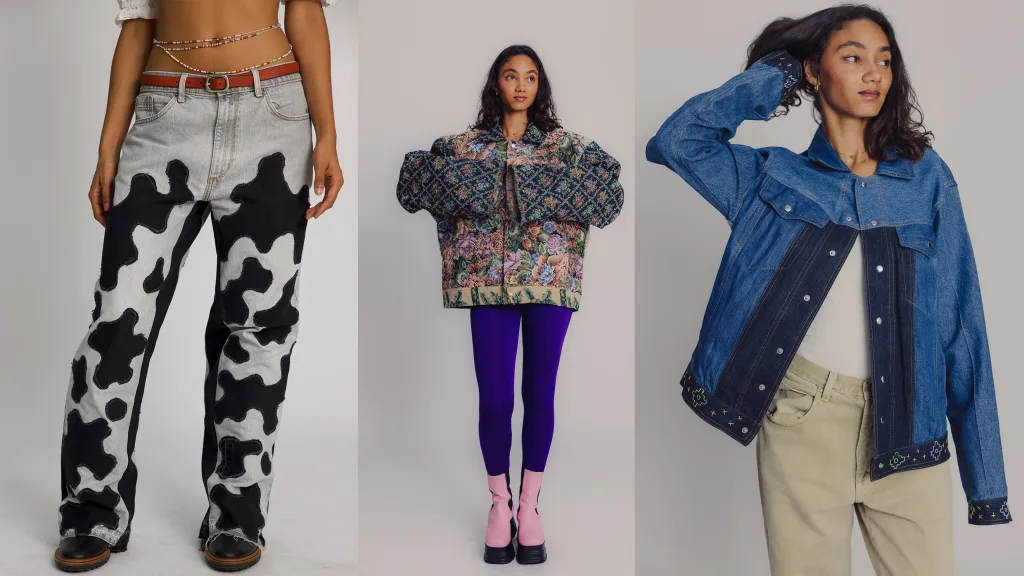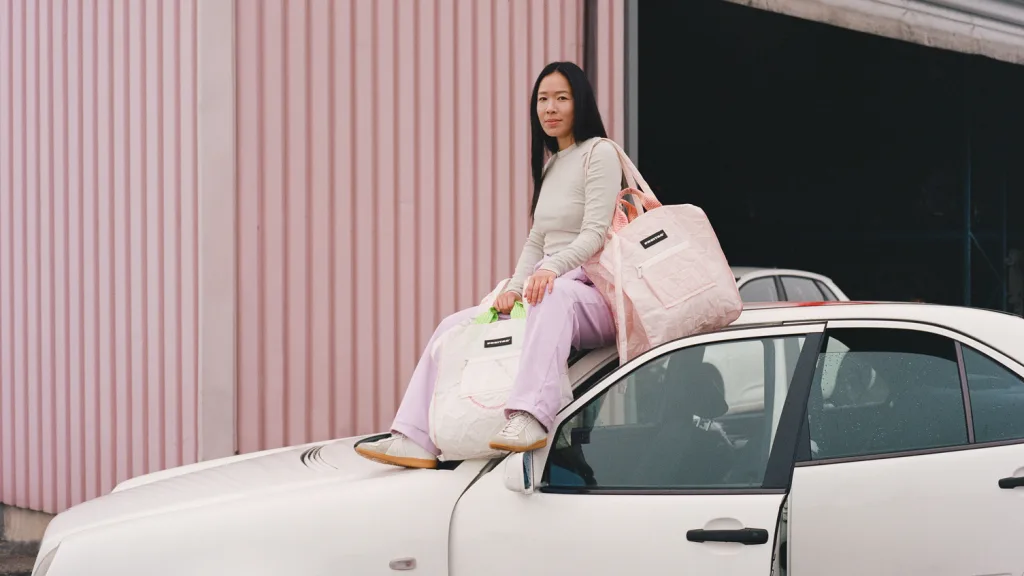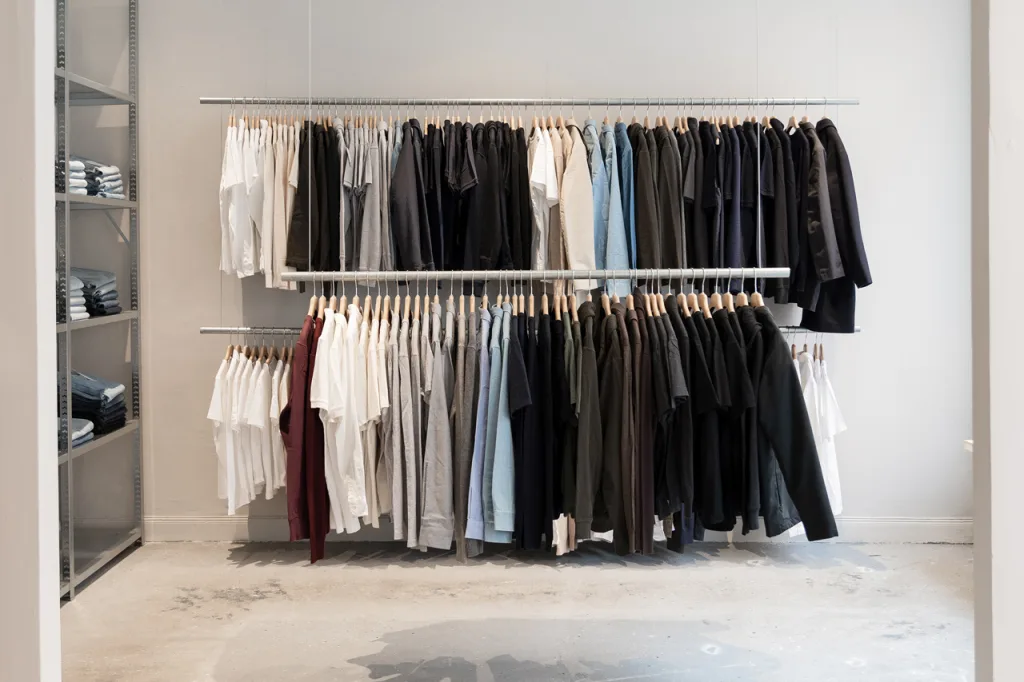Black Friday is an environmental catastrophe. These brands offer alternative approaches.
Black Friday transforms consumerism into a blood sport. Even before the Thanksgiving meal is over, Americans are scanning brands’ websites for promotions. The day itself is the biggest day of the year for in-person shopping, as people brave the crowds to score deals.
But the day is also a disaster for the planet. One study, from the University of Leeds, found that 80% of Black Friday purchases are discarded after minimal use. And those are items that people keep. Consumers return half of all gifts, and retailers discard a quarter of returns, which leads to six billion pounds of brand-new items in landfills. Many discarded products and returns are shipped off to Africa and South America, where local governments struggle to manage enormous mountains of waste. For instance, 15 million garments arrive at Kantamanto Market in Ghana every week, and 40% of them leave as waste.
This is something that Liz Ricketts has seen herself. She’s the cofounder and executive director of the Or Foundation, a Ghana-based nonprofit that asks brands to disclose their annual production volumes. “Every week, our team is removing an average of 20 tons of discarded secondhand clothing from a small section on a local beach,” she says. “This is a place where many of our team members grew up playing football and saw sea turtles laying eggs. The clothing waste has made this impossible, and fishermen are catching more clothing and other plastic waste than fish.”
Most brands feel pressure to give in to the frenzy and offer deals that will compel consumers to open up their wallets. But a few brave ones are using the day to push back against the system. Here are brands you can support if you want to take a more ethical approach to Black Friday.

Vestiaire Collective
To draw attention to the state of fashion waste, the Or Foundation has partnered with the luxury resale site Vestiaire Collective to offer a collection of upcycled garments and accessories created by Ghanaian designers. Given the billions of garments that now circulate in Ghana, there are now 30,000 people working in markets to upcycle, reuse, and repair garments. Many of the pieces they create are even more beautiful than the original garment. “Ghana has a rich culture of bespoke tailoring—most people here know their measurements and know how to sew, so we also wanted to challenge traditional definitions of luxury products, including the assumption that luxury is associated with certain geographies like Italy, Spain, or France, or with materials like leather or silk,” says Ricketts.

Freitag
Freitag is a Zurich-based brand that makes brands from durable upcycled materials, including truck tarpaulins and bicycle inner tubes. It has a cult status among designers, who love the functionality and indestructibility of the final products.
Freitag wants to take a stand against mindless mass consumption. It shuts down both its brick-and-mortar, as well as its online, stores on Black Friday. Instead, it offers what it calls Shopping Without Any Payment, or S.W.A.P., where it encourages customers to exchange bags. It’s designed to be a solution for people who have gotten tired of their existing bag and want something new and different, without adding to waste.

REI
Since 2015, the outdoor gear store REI has closed its doors on Black Friday, encouraging its employees to take the day off and go outside—all while being paid. They urge their customers to do the same. While the goal is to help curb unnecessary consumerism, REI also makes a broader point: time is a valuable resource. We can reclaim Black Friday as a day to enjoy time in nature and with our loved ones, rather than shopping for products we neither need nor want.
When REI first chose to reject Black Friday, it caused a stir. More than 170 outdoor companies, nonprofits, and organizations decided to shut their doors and spend Black Friday in nature; 1.4 million people also chose to follow suit. But some of the energy around this effort has lagged. Still, REI is continuing with its tradition, and encouraging others to do the same.
Everlane
Everlane participates in Black Friday. It is currently offering a sale of up to 50% of most items on the site. However, 10 years ago, it created the Everlane Black Friday Fund to raise money for good causes. This year, it is partnering with Fibershed, a nonprofit that develops regenerative agriculture in the United States. It will donate $50,000 to cultivate 170,000 pounds of cotton that is good for the climate, across six farms, spanning 120 acres of land.

ASKET
The Swedish sustainable clothing brand Asket is known for its very deliberate approach to designing garments. It spends years developing new products that are meant to last a long time and withstand trends. In keeping with this ethos, no new clothes are available for sale on its online store, or in brick-and-mortar stores, on Black Friday. Instead, customers can get free repairs on their garments in-store, or order spare parts for their existing garments.
ABOUT THE AUTHOR
Fast Company
(34)